Board of Directors
A diverse board includes participants from across the watershed and different sectors.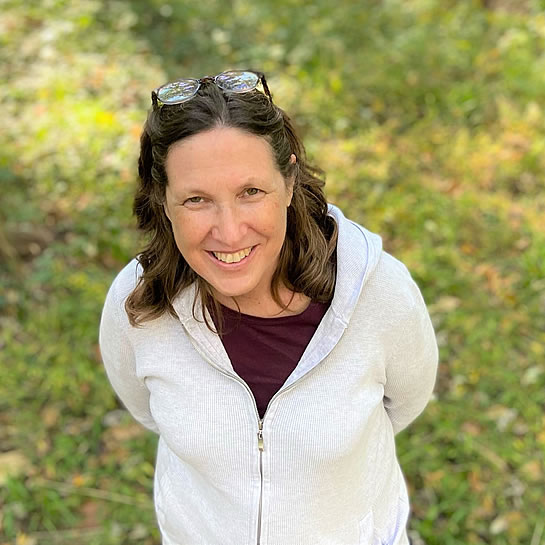
Kimberly A. Lutz, Executive Director
Kimberly A. Lutz (Kim) is the Executive Director of America’s Watershed Initiative (AWI), a collaboration working with hundreds of business, government, academic, and civic organizations to find solutions to the challenges facing the Mississippi River and the more than 250 rivers that flow into it. Formed in 2010, AWI engages leaders throughout the watershed with a diversity of perspectives and sectors including conservation, navigation, agriculture, flood control and risk reduction, industry, academics, basin associations, local, state, and federal government agencies. AWI published the Mississippi River Watershed Report Card, designed to provide decision makers, watershed leaders and the public with easy-to-understand information about the state of the watershed’s health to aid them in developing a collaborative approach to managing America’s Watershed. Report Cards are published every five years beginning in 2015.
READ FULL BIO
Lutz joins AWI from The Nature Conservancy, where she initiated and successfully led two multi-state watershed programs along the Savannah and Connecticut Rivers. Under her leadership, these programs improved river flows, restored large-scale floodplain forests, protected more than 6,000 acres, and achieved a significant refuge expansion. She was a founding member and former chair of the Friends of the Silvio O. Conte Refuge, a 70-member partner organization and multi-state watershed coalition where she helped successfully build congressional relationships that resulted in $23 million in federal funding for the Connecticut River Watershed. She also served in the U.S. Department of the Interior, working directly for the Senior Advisor to the Secretary to develop a national program for protecting and restoring nationally significant rivers and associated watersheds.
In 2015-2016, Lutz joined fellow conservation leaders in Massachusetts in a US State Department, Bureau of Education and Cultural Affairs program where she mentored emerging environmental leaders from Peru, Uruguay, and Mexico. She was also selected as a Global Sawhill Fellow, a senior leadership program of The Nature Conservancy. As part of this program, Lutz and her team developed the Conservancy’s first affinity group, Women in Nature (WIN), and established diversity and inclusion criteria for all managers.
Lutz obtained her Bachelor of Arts Degree from Wittenberg University in Springfield, Ohio in 1982 where she majored in Biology and Psychology. In 1987, she graduated from the University of Cincinnati with a Master of Science Degree in Biology. Her thesis research explored prairie restoration and resulted in a restoration plan for a county park.
Lutz and her husband John, a non-profit leader in Elder Care, have two adult children. She has also been an active community volunteer, serving in leadership positions at her children’s schools, and with their church.
A MESSAGE FROM THE EXECUTIVE DIRECTOR
Rivers have shaped me like they shape the landscape. Growing up mostly in cities, on the east and west coasts, summers spent fishing with my grandfather on a tributary to the Illinois River or motoring out on Uncle’s boat along the Upper Mississippi were precious times. These experiences had a profound impact on me and when it came time to pick an undergraduate major, biology was an obvious choice. Since then, I have had the good fortune to have my career shaped by rivers—the Savannah River, the Connecticut River, and now back to where this love of rivers started, America’s Great River, the Mississippi.
As I start this next chapter, I am reminded of all this great River provides— abundant wildlife, unmatched beauty, our home, our livelihoods. And all of us have a stake in what the watershed provides for our future. When America’s Watershed Initiative (AWI) envisioned a Mississippi River Watershed report card five years ago, we took great care to listen to, and measure, all aspects of the River’s health that we heard were important to you.
The results of the 2020 Mississippi River Watershed Report Card allow us to see how those important features are trending by assigning letter grades. Some grades and their stories illustrate what is working so that the next time we measure progress we see improvement. Some grades tell us that the Mississippi River Watershed faces urgent challenges with implications for the health and safety of Americans and the American economy. These challenges are national issues, impacting all of us.
Therefore, it is imperative to protect the Mississippi River Watershed through investment, learning, education and action. We hope you will join efforts to protect and strengthen the Watershed, so that it might continue to power our economy and livelihoods, today and for coming generations.
Board Members
National Advisory Council
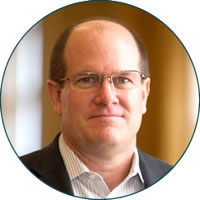
Bob Beduhn
HDR
Bob Beduhn began his career during the heyday of Superfund investigations throughout Minnesota in the mid- to late-1980s. After several years of tyvec, respirators and inclement weather, he returned to school to receive his bachelors and masters degrees in civil and water resources engineering. For over 30 years, Bob has worked on increasingly larger flood control and infrastructure projects, improving sustainability and resiliency from a number of natural and man-made shocks and stresses. An accomplished program/project manager, Bob has led some of HDR’s most complex engineering assignments. He is currently leading HDR’s Civil Works program and driving the integration of community resiliency approaches throughout our engineering programs.
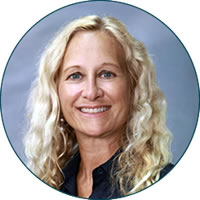
Debra Calhoun
Waterways Council, Inc.
Debra A. Calhoun is Senior Vice President of Waterways Council, Inc. (WCI), the national public policy organization that advocates for a modern and well-maintained system of inland waterways and ports. She has worked with WCI since its inception in 2003, and developed the communications program of its predecessor organization, Waterways Work! She previously and temporarily served as WCI’s Interim President/CEO.
She also serves as Secretary of the National Waterways Foundation, whose mission is to develop the intellectual and factual arguments for an efficient, well-funded and secure inland waterways system.
Prior to her work with WCI, from 1995 to 2012, she served as President/CEO of Colbert Communications, a communications consultancy practice that offered media relations, communications, public affairs, marketing and advertising counsel to a variety of clients, primarily in the maritime industry.
In 2019, Ms. Calhoun was awarded the prestigious National Achievement Award from the National Rivers Hall of Fame for her industry communications efforts.
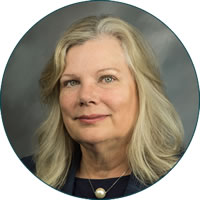
Joan C. Freitag
Hanson Professional Services, Inc.
Joan C. Freitag is senior vice president of Federal Services for Hanson Professional Services, Inc. She manages the federal business and clients and Hanson’s engineers and scientists who work for the Federal Government. With more than 30 years of experience in the engineering world, she has a bachelor’s degree from the University of Wisconsin at Madison and a master’s degree from the University of Illinois. She is a Fellow in the Society of American Military Engineers, a member of the Society for Marketing of Professional Services, is past national chair of the American Council of Engineering Company’s Federal Agencies and Procurement Advocacy Committee.

Teri Goodmann
Director of Strategic Partnerships, City of Dubuque
Teri Goodmann was appointed Assistant City Manager in February 2007. The primary focus of her work is intergovernmental relations, strategic partnerships, private and public grant funding. She is the City’s legislative liaison working with other cities, Dubuque County, state and federal elected and appointed government officials maintaining effective working relationships and alliances.
Prior to her employment at the City of Dubuque, Teri led the National Mississippi River Museum & Aquarium’s (NMRMA) national development efforts. Teri’s work included management of government relations and strategic partnerships, fund development, national outreach, and education as the Director of National Advancement for the NMRMA and National Rivers Hall of Fame. In this capacity, she was the lead campaign coordinator for the nationally recognized and highly successful America’s River project, the $188 million phase one riverfront redevelopment initiative in Dubuque, Iowa which opened in 2003. Teri continued to raise funds for the museum’s national traveling exhibit RiverWorks Discovery and its second phase $40 million National River Center which opened in 2010 creating the largest national river interpretive center in the United States.
Prior to her employment with the National Mississippi River Museum & Aquarium, she worked for sixteen years as a political campaign manager and consultant, managing campaigns for city, county, state legislative, congressional, and presidential candidates. She also taught French and Spanish to elementary students at area schools.
Teri is a founding steering committee member of America’s Watershed Initiative. She also serves as a trustee for the National Waterways Foundation. Teri served on the advisory board for Coalition to Restore Coastal Louisiana and the Iowa Chapter of the Nature Conservancy. Teri is also served as a board member of the John C Culver Public Policy Center at Simpson College.
EPA Administrator Lisa Jackson appointed Teri to serve on the Governmental Advisory Committee (GAC) advising the Commission for Environmental Cooperation as defined in the North American Free Trade Agreement (NAFTA). Teri continues to serve in the current administration as a member of the EPA Local Government Advisory Committee (LGAC) advising the EPA Administrator.
Other political appointments include:
- 2011 Appointed by Governor Terry Branstad to the Norman Borlaug Congressional Statue Commissioning Committee
- 2010 Appointed by Governor Chet Culver to the State of Iowa Smart Growth Planning Task Force and appointed as Co-Chair of the Commercial Property Tax Reform Task Force
- 2006 Appointed by Governor Tom Vilsack to the State of Iowa Vertical Infrastructure Advisory Committee and to the State Historical Society of Iowa
- 1997 Appointed by Dubuque County Board of Supervisors to the Judicial Nominating Commission
Teri recently completed her term as a board trustee of Clarke University, Dubuque, Iowa, and Teri is past chair of the Dubuque Regional Airport Commission. She has served on the boards of Hillcrest Family Service, the Friends of the Mines of Spain and the Dubuque Arboretum and Botanical Gardens.

Charlie Hess
President of Infrastructure and Coastal Restoration, Brown & Root
Charlie Hess has 40 plus years of demonstrated and recognized vision and leadership in multiple USACE, DOD, DHS and private sector assignments directly and indirectly relating to the water resources / civil works missions of CPRA. Currently as President of Infrastructure and Coastal Restoration for Brown and Root, he is positioning this Louisiana-based company to take a leadership role in supporting CPRA programs and projects in the state. He has in-depth knowledge of USACE, Army, DOD and DHS FEMA organizations. Hess has a proven history of starting and completing challenging projects and assignments within and outside government through relationship building and open communication. He is essential to providing strong, committed leadership and applying his extensive experience in program and project management to ensure the project success.
As Program Manager for the Inner Harbor Surge Barrier (IHNC) in New Orleans, he provided the Corps and CPRA, the local sponsor, leadership for the design and construction of the world’s largest surge barrier. This $1B project was completed in 4 years and was named the ASCE Outstanding Civil Engineering Achievement in 2014. Hess got his start in the civil works business in 1982 when he was assigned to lead the first-of-a -kind Cooper River Re-Diversion project in St. Stephen South Carolina for the USACE Charleston District.
He has a clear understanding of the water resources mission and challenges of the CPRA as well as national and state water resources issues from both multiple perspectives client/contractor, CPRA, USACE and other stakeholders. He has confirmed proficiency with multiple agencies and international interests as well as with bi-partisan congressional and administration interests. He has proven communications skills briefing media and others (Pentagon – Director Project & Contracting Office for Iraq Reconstruction 2004) congressional hearings (USACE 1997-2002 as Director Civil Works Operations) and numerous presentations to federal, state, and local political interests.
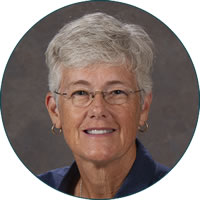
Dr. Barbara Kleiss
Tulane University
While I have worked throughout the United States, my career has focused on the rivers and wetlands in the lower Mississippi River valley. These efforts have been as varied as studies to understand sediment deposition and nitrogen dynamics in bottomland hardwood wetlands in Mississippi River tributaries, to sampling the water chemistry, ecology and groundwater to over forty rivers in the Mississippi Embayment, helping to develop Level IV ecoregions for the lower Mississippi Valley, and coordinating studies to assess the efficacy of river diversions.
In the most recent couple of decades, I have been involved in creating, developing and directing large interdisciplinary research programs associated with the Mississippi River and its delta, including serving as the Chief of the US Geological Survey’s National Water Quality Assessment Program’s Mississippi Embayment project, and the Director of both the Louisiana Coastal Area Science and Technology program and the US Army Corps of Engineer’s Mississippi River Geomorphology and Potamology program.
I am currently a Research Professor and the Coordinator of the River Science and Engineering Certificate program at Tulane University. My research interests include developing an improved understanding of the values of the residual lower Mississippi River floodplains, further understanding sediment and nutrient dynamics in the river and how they should be measured and developing programs by which principles of river science and engineering can be more readily conveyed to river management professionals across the country.
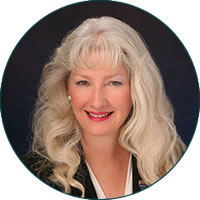
Norma Jean Mattei, PhD
Professor at University of New Orleans
Dr. Mattei earned her Ph.D. degree in Civil Engineering from Tulane University and has been a renowned researcher and educator in the areas of structures and construction materials. She is also a expert in sustainable engineering and construction and large watershed management initiatives. Dr. Mattei serves as one of two civilian civil engineer Commissioners on the Mississippi River Commission (MRC). She recently completed her year as 2017 President of the American Society of Civil Engineers (ASCE) and locally she is still active on the Executive Committee of the ASCE New Orleans’ Chapter of the Structural Engineering Institute. Norma Jean also has served in the past on several National Council of Examiners for Engineering and Surveying (NCEES) committees and task forces, most recently serving as chair of the Board-level NCEES Education Committee and is an Emeritus Member of NCEES. She was named by the Governor of Louisiana to Louisiana’s licensing board for professional engineers, LAPELS, serving as Chairman of the LAPELS Board in 2011-12. Dr. Mattei is a registered Professional Engineer in the state of Louisiana.
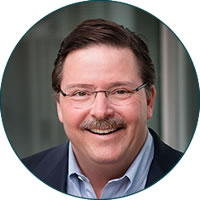
Dan Mecklenborg
Ingram Barge Company. Nashville, Tennessee
Dan joined Ingram Barge Company in 1996 as Vice President, General Counsel and Secretary, and was promoted to Senior Vice President and Chief Legal Officer in 2002. He is responsible for the company’s Legal, Claims, Safety, Environmental and Governmental Affairs functions. He also leads Custom Fuel Services, which is an Ingram subsidiary engaged in the sale and distribution of marine fuels and lubricants at ten locations throughout the inland river system.
Dan has been actively involved in civic and professional organizations throughout his career. In 2003 he completed a four-year term as a Member and then Chairman of the Inland Waterways Users Board. He rejoined the Users Board in 2013 as Ingram’s representative. Dan currently serves on the Board and Executive Committee of Waterways Council, Inc. and was its Chairman from 2007 through 2009. Since 2010, Dan has served on the Board of The Nature Conservancy’s Great Rivers Partnership. He also serves on the Steering Committee for America’s Watershed Initiative.
A native of Cincinnati, Ohio, Dan received his Bachelor of Arts degree in economics from the University of Dayton in 1977, and his Juris Doctor degree from Salmon P. Chase College of Law in 1981. He is licensed to practice law in both Tennessee and Ohio.

John Montgomery
Santec
Senior Vice President – Federal Operations Leader. John has over 35 years of career experience and has held several key senior leadership positions with Stantec including the North America Coastal Resiliency corporate campaign leader and Water Resources Sector Leader. He has devoted his career to understanding how ground and surface water systems are interconnected, and what affect each has on the other while helping communities deal with water-related challenges and opportunities. Additionally, he assists local, state and federal communities with developing and implementing water resource capital programs to address quantity and quality issues. He has led many of Stantec’s large programmatic efforts for dam safety, flood control and watershed planning including serving as program manager for the assessment of more than 30 storage, flood control, and hydroelectric dams in the southeast United States for the past 10+ years. He is currently the Federal Operations Leader responsible for implementation of consistent business practices and common federal project management delivery framework to meet business objectives. He and his team develop federal business delivery policies and procedures, training programs and other practices required to deliver federal projects across all Stantec’s business lines.
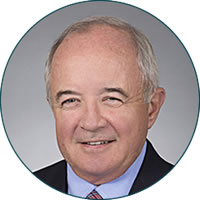
Frank Morton
Turn Services, LLC
Frank uses his interest and experience in all aspects of the Mississippi River Watershed to support AWI’s mission of convening diverse stakeholders to collaborate to chart a course for the future of the watershed.
Frank brings to AWI a decades-long career in the inland marine industry. From 1990 to 2012, he served as founder and president of Turn Services, a full-service barge towing, shifting, fleeting, cleaning, repair, and barge inspection company operating in eight locations on the Lower Mississippi River. Frank has served in a variety of leadership roles with the American Waterways Operators, the leading trade association for the U.S. tugboat, towboat and barge industry, including a term as national chairman in 2014-2015, as well as on its Leadership Council, Executive Committee, and National Board of Directors. He is also a member of the Waterways Council, Inc. the Gulf Intracoastal Canal Association, and the Louisiana Association of Waterways and Shipyards, among other professional memberships. In 2016, he was named the Propeller Club Port of New Orleans Maritime Person of the Year.
Frank holds a Bachelor of Arts degree in Political Science from the University of Southern Mississippi, and completed post-graduate work in Business Administration at the University of New Orleans. He and his wife Virginia have three children and four grandchildren.
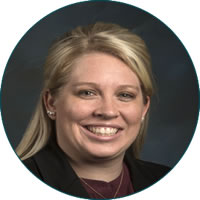
Rachel Orf
National Corn Growers Association
Rachel is the Director of Stewardship and Sustainability at National Corn Growers Association (NCGA), a membership organization representing over 40,000 active growers from 28 affiliated state corn organizations.
Rachel started her career with an internship at DuPont Pioneer, were she was a maize breeding intern. Her major project was pollinating corn plants to create new hybrids. Rachel has also worked for Monsanto where she tested software on a user perspective that was developed for the Sales Reps to use while out in the field. Rachel started her career with NCGA as the manager of the National Corn Yield Contest. This involved testing the contest software; collecting and processing all the entry and harvest forms; maintaining a positive relationship with seed companies, supervisors and growers; and recognizing the winners at Commodity Classic – the annual joint venture event hosted by NCGA, ASA, NAWG and NSP. Rachel is currently the Director of Stewardship and Sustainability where she works with the affiliated corn states on water quality, conservation, and air quality. She also oversees the National Corn Yield Contest, Good Steward Recognition Program and is the lead staff on the Stewardship Action Team.
She received her BS from Missouri State University in Ag Business with a minor in Agronomy and her MBA from Lindenwood University.
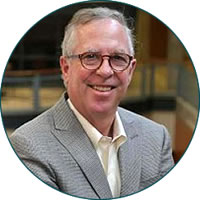
Craig E. Philip, PhD
Research Professor, Civil and Environmental Engineering, Vanderbilt University
Dr. Craig Philip is a Research Assistant Professor of Civil and Environmental Engineering and the Former Director of VECTOR. Dr. Philip’s research focus includes infrastructure sustainability and the application of risk management tools to transportation systems, carrier safety management, and transport policy and regulation with a particular focus on Maritime Systems. Prior to joining Vanderbilt, Dr. Philip spent 35 years in the rail, intermodal and maritime industries, including Conrail and Southern Pacific Railroads. He joined Ingram Barge Company, the largest US marine transport carrier in 1982 and from 1999 until 2014 served as President/CEO. He has served as Chairman of multiple Maritime Groups and was a US Commissioner of PIANC and Chaired the US Chamber of Commerce’s Transportation and Infrastructure Committee. Dr. Philip has served on the USDOT’s National Freight Advisory Committee and the Executive Committee of the Transportation Research Board and is presently a member of its Marine Board and Resilience Section. He is a Board-Certified member of the American Academy of Environmental Engineers and Scientists. In 2010, Dr. Philip was designated a Distinguished Diplomat in the Academy of Coastal, Ocean, Port and Navigation Engineers, and in 2014 was elected to the National Academy of Engineering.
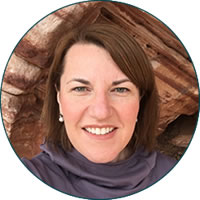
Rainy Inman Shorey
Caterpillar Inc. Peoria, Illinois
Rainy joined Caterpillar in 2007 and spent the first half of her career as an Environment, Health and Safety (EHS) Professional and Manager in Central Illinois. After serving seven years overseas as a Project Manager and New Products Implementation Manager in Poland and Japan, Rainy returned to Illinois in 2020 as a Master Black Belt in the Lean Center of Excellence. She is currently Global Manager of Product Compliance & Support. Prior to joining Caterpillar, Rainy worked as a Professor of Natural Sciences at Ferris State University in Big Rapids, Michigan and Illinois Central College in Peoria, Illinois.
She has extensive laboratory and field research experience, including international projects based in remote locations such as Kenya and the North Slope of Alaska. Rainy holds a Bachelor’s degree in Biology with minors in Chemistry and Environmental Studies from Alma College. She completed both her Master’s and dual Ph.D. degrees from Michigan State University in the areas of Fisheries and Wildlife Management; and Ecology, Evolution and Behavioral Biology.

BG (Ret.) C. David Turner
Next Generation Logisitics, and Dawson & Associates
Brig. Gen. (Ret.) C. David Turner, U.S. Army, Founder, CEO and President 3E Turner & Associates currently serves on the Board of Directors for Professional Project Services, Board of Directors for America’s Watershed Initiatives as well as holding senior executive roles with Dawson & Associates, Binary Exchange Technologies, Twitty & Associates, Next Generation Logistics, Hyperloop TT and MacDonald-Bedford. Previously, Gen. Turner served as President, Military Services Group for American Water Enterprises, where he oversaw operations involving water treatment and supply for 14 U.S. military installations.
His experience in the U.S. Army Corps of Engineers (USACE) includes an enviable record of success on policy and projects involving engineering, construction, environmental oversight, contract negotiations and information technology. During his 33 years with the Army, Gen. Turner established a reputation throughout USACE for operational and strategic leadership. During his final decade of service, he commanded Corps of Engineers divisions in Atlanta and San Francisco, USACE District in Korea and served as USACE’s Chief of Staff in Washington D.C. He also served as Chief of Staff for Combined Joint Interagency Task Force in Afghanistan. Gen. Turner served four tours in the Pentagon. During his last tour, Gen. Turner led the largest transformation of the U.S. Army since WWII, while serving as the Army’s Division Chief for the 2005 Base Realignment and Closure, an $18 billion dollar program.
David has extensive experience working natural disasters with the Federal Emergency Management Administration, and other federal entities, State and Local Governments. During natural disasters, David worked directly with the Governors of California, Florida, Georgia, South and North Carolinas and their Emergency Management Departments. His thorough understanding of USACE’s capabilities and ability to strategically communicate those capabilities to federal, state and local leaders significantly enhanced USACE’s recovery and response efforts.
Former member of the USACE Coastal Engineering Research Board.
He was awarded the City of Atlanta Phoenix Award. He also received a Letter of Appreciation from the Republic of Korea Secretary of Defense. David was also awarded in 2009, BEYA Professional Achievement for Government Service and 2014 BEYA Army Stars and Stripes Award winners. Additionally, David was awarded the Army Engineer Associations Bronze and Silver DeFleury Medals. He is a University of Central Missouri Distinguished Alumni and Webster Groves Wall of Fame. Upon his completion of Federal Service, he was awarded the Army’s Distinguished Service Medal. David is an Eagle Scout.

Kirsten Wallace
Upper Mississippi River Basin Association (UMRBA). St. Paul, Minn.
Kirsten Wallace is the Executive Director for the Upper Mississippi River Basin Association. The Association is a 5-state interstate organization formed by the Governors of Illinois, Iowa, Minnesota, Missouri, and Wisconsin to coordinate the states’ river-related programs and policies and work with federal agencies that have river responsibilities. In her position, Wallace develops regional positions, advocates the states’ collective interests before Congress and the federal agencies, and facilitates and fosters interagency coordination, cooperation, and communication.

Larry Weber
Dept. of Civil & Environmental Engineering, University of Iowa. Iowa City, Iowa
Larry Weber is the Chair in Hydraulics in the Department of Civil and Environmental Engineering, and director of Hydroscience & Engineering at the University of Iowa. His leadership of that world-renowned institute has advanced it to even greater prominence, doubling its number of graduate students and tripling its grant- and contract-supported research. In 2009 Weber co-founded the Iowa Flood Center, which has provided superb services to the state to help Iowans prepare for flooding events more effectively. The center has taken on a national profile, sharing valuable knowledge with communities and institutions across the country. In 2013, Weber led a collaborative effort with the Iowa Legislature, Iowa State University and the University of Northern Iowa to form the Iowa Nutrient Research Center (administered by ISU), a Regents Center focused on developing science-based approaches to understanding point source and non-point source nutrients discharges in Iowa. Recently, Weber led a collaborative process that brought the Iowa Geological Survey to IIHR, expanding its role in better understanding the state’s precious groundwater resources. Weber serves the state on the Iowa Water Resources Coordinating Council and routinely provides guidance on water science and policy related matters to the legislature and various state/federal agencies. Through Weber’s leadership, IIHR has broadened its research, outreach and educational programs to cover groundwater to surface water flows, water quantity and water quality issues, by studying conditions ranging from drought to flood, and everything in between.
